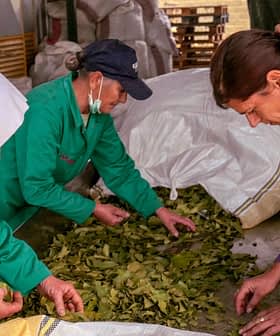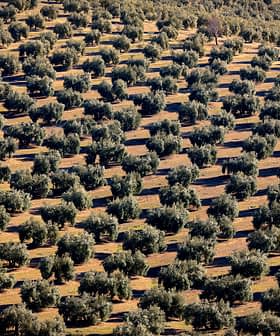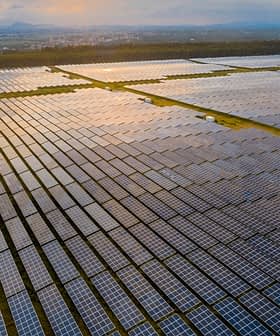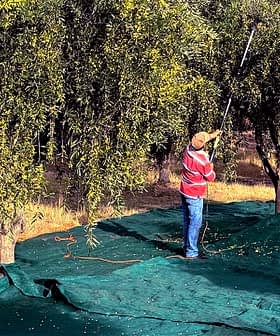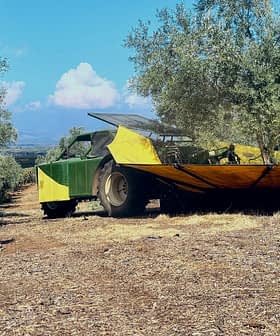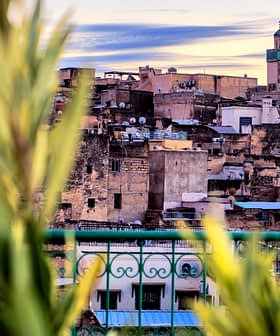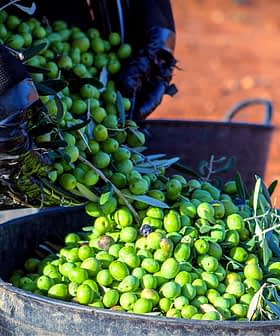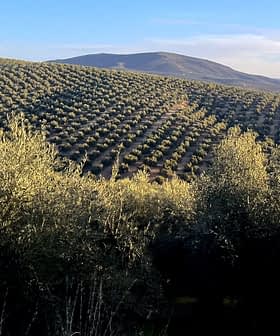Groves Need Rain Ahead of Harvest in Greece
Olive farmers in Greece are concerned about the impact of hot and dry weather on the upcoming olive oil crop in the 2024/25 season, with rain being cited as a critical factor for a successful harvest. Despite challenges due to the prolonged dry conditions, some regions, such as Messenia, are optimistic about a satisfactory harvest if the rains arrive on time, with estimates indicating a rebound in olive oil production to more than 60,000 tons in the region.
After more than four months of hot and dry weather in much of Greece, olive farmers and olive oil producers cite rain as the most critical factor for a substantial olive oil crop in the country in the coming 2024/25 crop year.
“The drought has hit olive farming throughout the Mediterranean,” said Yiorgos Kokkinos, the president of the Nileas producer association from the Messenia region in southern Peloponnese.
“In our area, the weather has been warmer than usual since spring, and we have seen no substantial rain for four months,” Kokkinos added. “We did get some light rainfall a few days ago, but it was only sporadic. In some areas, the olive trees face significant problems due to the prolonged hot and dry conditions.”
We just need a couple of tree-watering rains for a strong olive oil crop to materialize. But if the rains do not come, the harvest will not happen in some parts of the region.
However, Kokkinos said that local producers expect a satisfactory harvest if the rains arrive on time.
“The fruiting of the olive trees went really well,” he said. “We just need a couple of tree-watering rains for a strong olive oil crop to materialize. But if the rains do not come, the harvest will not happen in some parts of the region.”
Initial estimates have indicated that olive oil production in the Messenia region is expected to rebound to more than 60,000 tons from around 40,000 tons last year.
See Also:2024 Harvest UpdatesThis summer, the central and southern regions of Greece, home to most of the country’s olive groves, witnessed identical dry weather conditions in June and July, characterized by an absence of rain and morning dew and temperatures remaining between 35 ºC to 40 ºC for several days in a row, stressing the olive trees.
July was also the hottest ever recorded in the country, according to the National Observatory of Athens, exceeding the average temperature from 1991 to 2020 by 2.9 °C and the previously warmest July of 2012 by 0.3 °C.
According to the long-term weather forecasts, there is also a more than 60 percent chance that September and October will be 1.5 ºC to 2 ºC warmer than usual in Greece.
Estimates about the country’s 2024/25 olive oil production vary significantly among industry experts, indicating the uncertainty dominating the sector due to the irregular weather.
However, with the olive trees having entered an ‘on-year’ in their natural alternate bearing cycle, most olive oil-producing regions in Greece are set to rebound after a previous gloomy 2023/24 harvest.
According to Manolis Yiannoulis, head of the National Interprofessional Olive Oil Association (EDOE), Greece will likely yield 250,000 to 280,000 tons of olive oil, almost double last year’s quantity.
“A prerequisite for this to happen is that the weather remains favorable until the harvest, which is in about three months from now,” Yiannoulis noted. “High temperatures and the lack of rain always cause anxiety to producers.”
Other experts told Olive Oil Times that Greece’s coming olive oil crop will likely hover around the 200,000-ton threshold, up by more than 30 percent from last year.
Rain is also a crucial component of a robust harvest in other producing regions in the country.
“The olive trees on the island had a robust flowering, so we have high hopes for a bountiful production both in quality and quantity provided we get some rains,” said producer and mill owner Yiannis Protoulis from the island of Lesbos in the Aegean Sea.
Lesbos is home to more than 11 million olive trees, mainly of the local Kolovi and Adramytini varieties that produce the island’s distinctive yellowish olive oil.
“Last year, the production of olive oil on Lesbos was minimal,” Protoulis said. “We have not seen a bumper harvest on the island since the 2019/20 season. A couple of abundant rainfalls in September will make the island’s olive oil production exceed 15,000 tons this crop year, a figure that comes straight from our glorious years of the past.”
In northern Greece, olive farmers based in the Chalkidiki peninsula told ERT News that they have been forced to water their olive trees since April due to the region’s abnormally hot and dry weather.
They added that Chalkidiki is a popular summer tourist destination, making tourists and farmers compete for the same resource, and the state should introduce a regulation to secure water availability for farming purposes.
On Crete, producers are also anticipating an above-average harvest this year, provided the island’s olive groves receive some rain.
“Apart from 30 percent [of the island’s olive trees], which had problems since their early fruiting, the remaining 60 to 70 percent are developing very well, and it will be a good year if the weather is on our side,” said producer Michalis Kabitakis from Heraklion.
“If we get some rain in August, the olive trees will fare much better,” he added. “Otherwise, the 30 percent that already has problems will become 50 percent.”
According to some initial estimates, olive oil production on Crete will likely exceed 60,000 tons in 2024/25 after a dismal 2023/24 crop year when around 30,000 tons of olive oil were produced on the island.
However, in previous harvests on Crete and other producing regions, it has been observed that the beneficial autumn rains that help the olives increase their olive oil content can sometimes also favor the manifestation of olive pests, especially the olive fruit fly.
Back in the Peloponnese, optimism came from the peninsula’s Ilia region, where local producers are sanguine about a bountiful olive oil harvest this year.
“Our trees are loaded,“ said local award-winning producer Alexis Karabelas. “Water scarcity is not a problem since our trees are irrigated. Almost all producers in the vicinity of Ancient Olympia are expecting a robust harvest.”
“The recent rainfalls in our area were abundant in the past weeks, significantly helping non-irrigated trees, and the fruit fly is nowhere to be seen,” he concluded. “It looks like it will be one of the best harvests we have ever seen.”


